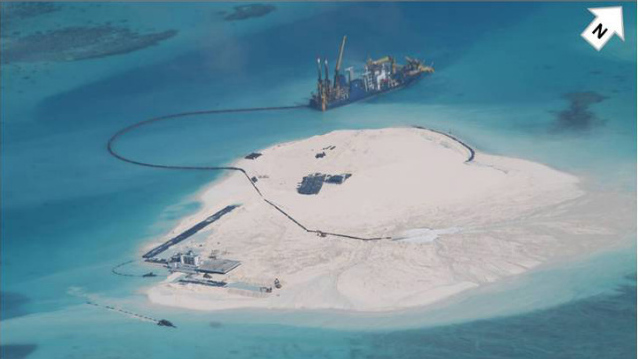SUMMARY
This is AI generated summarization, which may have errors. For context, always refer to the full article.

MANILA, Philippines – Saying its proposal can also help China, the Philippines asserted its new triple action plan (TAP), which includes a moratorium on aggressive activities in the disputed South China Sea, after Beijing rejected Manila’s bid.
The Philippines said at least 3 countries in the Association of Southeast Asian Nations (ASEAN) – Vietnam, Indonesia, and Brunei – support the TAP that the Philippines is set to propose at the ASEAN Ministerial Meeting (AMM) in Myanmar this week.
“We will continue to raise our TAP proposal at the coming AMM and related meetings in Myanmar in order to manage tensions in the area for the sake of regional peace and stability,” Philippine Department of Foreign Affairs (DFA) spokesman Charles Jose said Tuesday evening, August 5.
“We believe that our framework proposal is positive, constructive, and comprehensive, and will be beneficial to everyone in the region, including China,” Jose added.
‘Up to China’
The DFA was responding to China’s statement “that it can build what it wants in the South China Sea.”
Reuters attributed this statement on Monday, August 4, to a senior Chinese official.
“The Spratly Islands are China’s intrinsic territory, and what China does or doesn’t do is up to the Chinese government. Nobody can change the government’s position,” said Yi Xianlang, deputy head of the Chinese Foreign Ministry’s boundary and ocean affairs departments, according to Reuters.
Yi also made an apparent reference to the Philippines, which China earlier slammed for planning to build an airport in the South China Sea even as the Southeast Asian country called for a moratorium on provocative activities.
Yi said: “Why is it that when other countries wantonly build airports, nobody says a word? But China has only this year started small and necessary construction, to raise living conditions on the islands – and so many people raise doubts.”
China is conducting reclamation activities in the South China Sea as part of its “expansion agenda” that hinders peace and stability in the region, according to Philippine Foreign Secretary Albert del Rosario.
‘Moratorium on specific activities’
The Philippines’ TAP, which it formally introduced to the public on August 1, aims to curb activities that raise tension in the South China Sea.
It also serves as a “more concrete definition” of the ASEAN-China Declaration of Conduct (DOC) of Parties in the South China Sea, a 2002 statement to maintain peace in the disputed waters.
The DFA explained that the TAP is composed of an immediate, an intermediate, and a final approach to resolve South China Sea disputes.
The immediate approach is to call for “a moratorium on specific activities that escalate tension in the South China Sea.”
The intermediate approach is to highlight “the need and call for the full and effective implementation of the DOC and the expeditious conclusion of the Code of Conduct,” a binding document to replace the DOC.
The final approach is to underscore “the need for a settlement mechanism to bring the disputes to a final and enduring resolution anchored on international law” – a move that the Philippines took when it filed a historic case against China in 2013.
The DFA said Friday: “The Philippines hopes that the claimant states, other ASEAN countries, and the ASEAN dialogue partners will favorably consider this proposal as it is comprehensive, constructive, and brings together various initiatives that the Philippines and other countries have been advocating on the issue of the South China Sea for the past years.” – Rappler.com
Add a comment
How does this make you feel?
There are no comments yet. Add your comment to start the conversation.